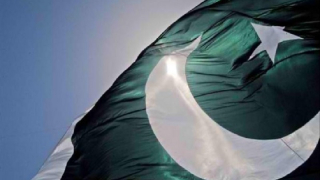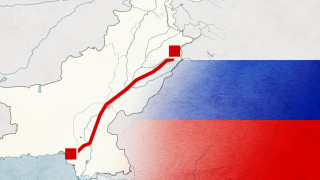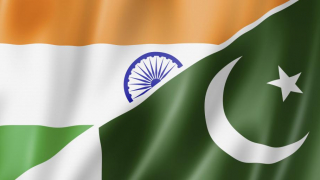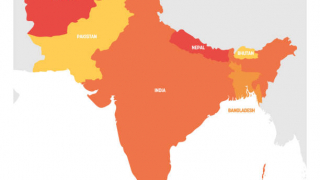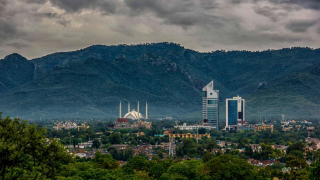Pakistan: IMF bailout Package and its percussions
20.05.2019
Pakistan is one of the 189 countries as member of International Monetary Fund (IMF), established in 1945. Primarily the objective of IMF is to ensure the stability of the international monetary system—the system of exchange rates and international payments that enables countries and their citizens, to transact with each other. The Fund's mandate was updated recently in 2012 to include all macroeconomic and financial sector issues that bear on global stability to make it more comprehensive.
Conditions and effects on Pakistan
IMF money however easy it may seem, has long term repercussions on a nation’s economic health. IMF bailouts come with strings attached which make sure that the country seeking the bailout doesn’t end up in the same situation that caused it to seek a bailout in the first place and also that the fund isn’t depleted for others to use it on time.
Over the past few decades, IMF’s recommended policy changes, reforms and conditions generally follow the following agenda: subsidy cuts, loosening up rules for FDI, cap growth rate (GDP), depreciation of currency, privatization of state-owned enterprises, and reduced corporate taxes, while widen tax net and ensure more tax collection and etc.
While the IMF and its advocates argue that its programs and policies prevent a more severe crisis, opponents say they are designed to make countries more dependent on the IMF and end up leaving populations poorer. Considering the fact that Pakistan has gone to the IMF 21 times since independence of 7 decades, it’s easy to see why the latter camp might have a fair case.
For Pakistan the IMF program is also important because it gives Pakistan’s economic system a kind of legitimacy and a stamp on which the World Bank, Asian Development Bank and other foreign donors can open their gates of generosity. These agencies can lend money to Pakistan in order for it to pursue its development agenda, which is fundamental to the government’s long term survival.
Current IMF Programme
It will 22nd programme. But, it will be in very different in nature as compared to all previous 21 programmes, where Pakistan was very close non-NATO ally of USA. Pakistan was on the right side of US, partner in Cold War Era, Front Line State in War on Terror. But today the situation may be rather different, as after Abbottabad Incident and Salala Incident in 2011, Western World has almost written-off Pakistan. USA has signed Major Defense Partner (MDP) agreement with India. USA has created Indo-Pacific Alliance with India, Japan and Australia, to counter China. USA has assigned a role in Afghanistan to India to replace Pakistan.
While Pakistan is founding member of BRI and bearers of flagship project CPEC under BRI. There was tweet from President Trump and statement from Secretary of State Mr. Pompeo, warning that IMF money may not be given to China or CPEC or BRI. IMF is sure under the influence of USA. Some of IMF’s negotiations were focused on transparency of CPEC or much more beyond the CPEC, but Pak-China cooperation in all fields.
Appointment of Finance Advisor with status of Minister, a close associate of World Bank, and nominate of IMF for the post of Governor State Bank, are rather alarming as the influence of IFIs in domestic affairs of Pakistan. It will have sever political implication on Pakistan.
Possible Impact of IMF programme
Pakistan has accepted all three conditions of IMF as:
- Market based Exchange rate: The immediate impact of decision to approach IMF, is the devaluation of Pakistani Rupees. By depreciating only one rupee to US dollar, our foreign debt increases 95 billion rupees. Usually IMF demand major depreciation but all governments understands the implications of sharp devaluation, always try to bargain with IMF to the best of their capacity. I am sure, Government of Pakistan will also negotiate and get the best bargain. The recent example of Egypt, where its currency was devalued by 48% and price hike witnessed 110%.
- Removal of subsidies: Especially the agriculture and food products will become beyond the reach of common man. It may widen the gap between the poor and rich. More and more people may fall under poverty line, against the MDGs.
- Increase in Tax collection: Taxes burden will make common man’s life even more difficult.
Price escalation, cost of living, reduced jobs, etc. may create new chaos in the society and may create unrest leading to political instability. Pakistan may face even more serious challenges in the days to come.




